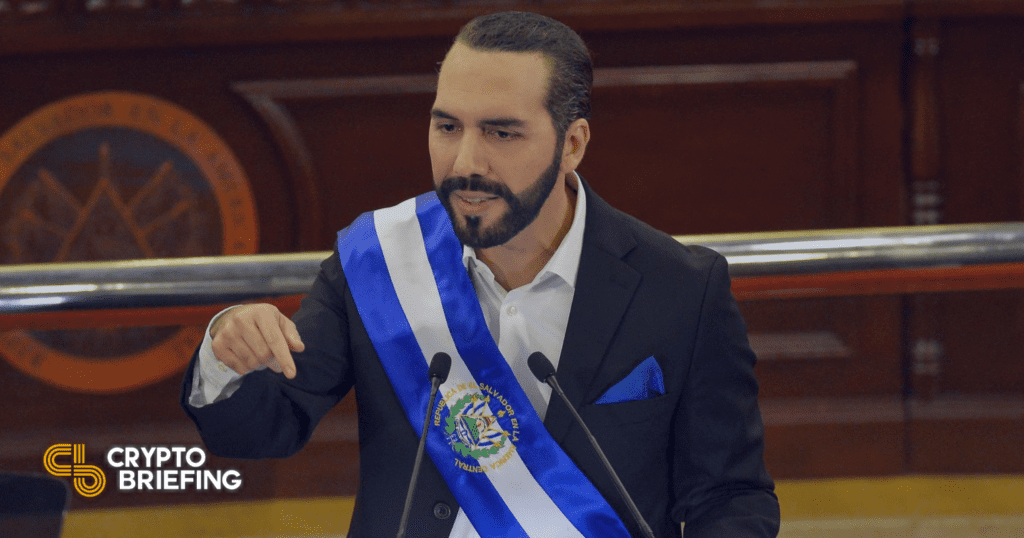
Photo: Camilo Freedman/Bloomberg via Getty Images
Bitcoin “Should Not Be Used” as El Salvador Currency: IMF
The International Monetary Fund has warned El Salvador against using Bitcoin as legal tender for the second time.
The International Monetary Fund has again warned El Salvador against using Bitcoin as a national currency, citing consumer protection, money laundering, and financial stability risks.
El Salvador Warned Against Using Bitcoin as Legal Tender
The International Monetary Fund (IMF) has declared that Bitcoin “should not be used as a legal tender” in El Salvador.
On Nov. 22, two days after El Salvador announced its plans to build the world’s first “Bitcoin City,” the Washington-based lender published a statement reiterating its concerns surrounding the country’s use of Bitcoin as legal tender.
“Given Bitcoin’s high price volatility, its use as a legal tender entails significant risks to consumer protection, financial integrity, and financial stability,” the IMF staff wrote. “Its use also gives rise to fiscal contingent liabilities. Because of those risks, Bitcoin should not be used as a legal tender.”
The concluding statement represents the IMF staff’s technical evaluation of El Salvador for 2021, conducted at the end of an official mission to the Central American country. The staff’s mission aimed to evaluate the general health of El Salvador’s economy and prepare a report to the IMF Executive Board based on the findings.
The report evaluated El Salvador’s Bitcoin adoption and the effectivenesss of Chivo, a digital wallet that lets Salvadoran citizens make payments in both U.S. dollars and Bitcoin. The IMF staff noted that while El Salvador’s financial inclusion and growth efforts are welcomed, the country should implement stronger regulation and oversight of its new payment ecosystem to manage consumer protection, anti-money laundering, and counter financing of terrorism risks.
“Measures to limit fiscal contingent liabilities, such as winding down the trust fund or withdrawing public subsidies to Chivo, should also be promptly considered,” the staff added in the statement.
On Nov. 20, El Salvador’s president Nayib Bukele announced plans to issue $1 billion worth of Bitcoin-backed sovereign bonds to fund Bitcoin City—a new Bitcoin hub located along the Gulf of Fonseca where residents will be exempt from paying income, property, capital gains, or payroll taxes.
While the bond proposal to fund Bitcoin City was not part of the initial discussions between the IMF and the Salvadoran authorities, the statement noted that the plans would “require a very careful analysis of implications for, and potential risks to, financial stability.”
Addressing IMF’s evaluations, El Salvador’s President Nayib Bukele wrote in a Tuesday tweet:
“The International Monetary Fund has just published its technical evaluation of El Salvador for the year 2021. And although we obviously do not agree on some things such as the adoption of Bitcoin, the analysis they make of our country is interesting.”
The IMF’s warnings against El Salvador’s move to adopt Bitcoin as a legal currency are only the latest in a long series from international financial organizations. In a July blog post, the IMF declared that using crypto assets as national currencies was a “step too far.” The World Bank also denied El Salvador’s request for technical assistance in adopting Bitcoin in June, citing environmental and transparency concerns.

 Earn with Nexo
Earn with Nexo